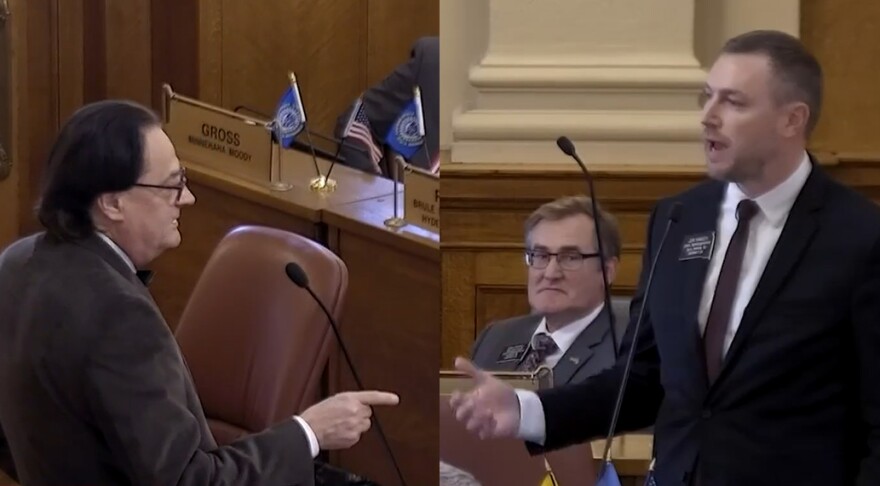A bill to limit parole for violent offenders, known as the “truth in sentencing” bill, was given final legislative approval on Tuesday, Feb. 28.
The House of Representatives turned down a proposed amendment and heard long testimony that included information about victims and their rights. They then voted 53 to 17 in favor of passage.
Senate Bill 146 puts limits on parole opportunities for certain offenders sent to the South Dakota State Penitentiary.
Rep. Sue Peterson introduced the bill on the House floor and noted that it does not apply to drug crimes or other nonviolent offenses.
“It’s focused on violent crime because that’s the greatest area of concern, for our citizens and for law enforcement,” she said.
Currently, first-time violent offenders come up for parole consideration after serving half of their sentences.
Rep. Jon Hansen asked the legislative body to consider how that scheme affects victims.
“I would ask that you put yourself in the shoes of the victim or the victim’s family,” he said. “And they’re sitting in that courtroom, and this judge is going to announce the sentence for somebody who did them great harm.”
Hansen said the victim might hear the judge pronounce a ten-year sentence and be traumatized five years later to learn that the offender has qualified for parole.
But Rep. Mike Stevens said the state has mandatory victims’ rights laws that require informing a victim before sentencing how parole guidelines work.
“When the state’s attorney goes and makes a deal with the defense attorney, they first go to that victim,” he said. “And they tell ’em, ‘This is what it’s going to be. This is how much time it’s going to be.’ The victim knows it. Everybody knows it.”
Stevens said it might seem complicated to people not accustomed to how a courtroom functions, but there’s a system to keep victims as well as defendants informed. And he said taking a more punitive approach in sentencing does not lower the crime rate.
“You know, in each year, we continue… in my ninth year, we continue to set more felonies, longer sentences, and we still have the same problem,” Stevens said.
The bill has now had final approval and will go to the Governor for a signature.



